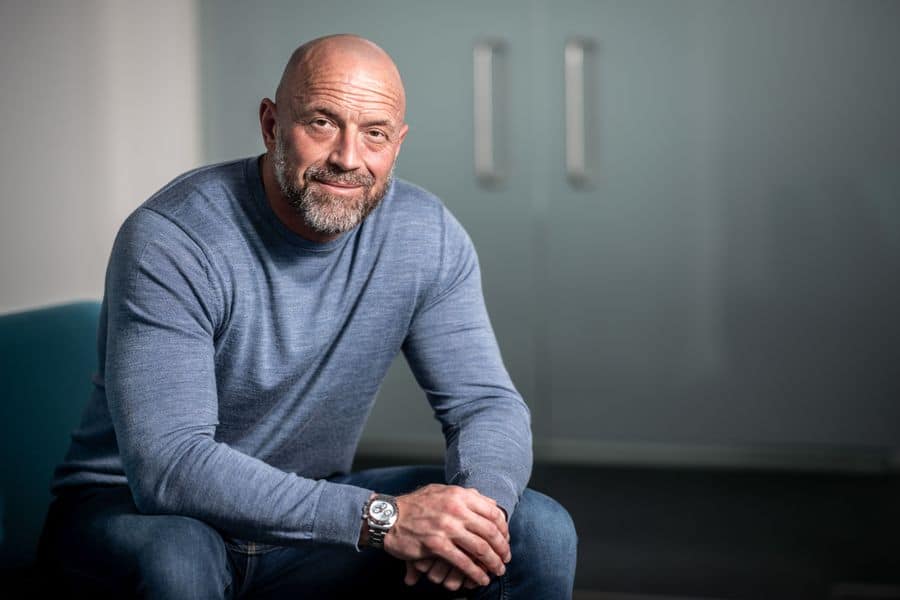EXCLUSIVE: Why investing in new talent is essential for driving the healthcare sector forward
The healthcare sector is at severe risk of getting left behind if it does not invest in new blood to help drive it forward. Graham Ewart, CEO of Direct Healthcare Group (DHG), which specializes in the manufacture of medical devices, products and solutions for patients with limited mobility, shares his insights exclusively with THIIS…
The recruitment issues in healthcare have long been front and centre of the news agenda, not only in the past two years, but for as long as I can remember. Attracting and retaining staff across med-tech, social care and nursing has been a thorn in its side for a long time, and this issue is more prevalent than ever in today’s pandemic world.
Reports late last year suggested there are now more unfilled care jobs than before COVID-19, with care companies forced to turn down work supporting patients as they move from hospital back to their own homes or care homes simply due to a lack of staff.
Clearly, there are improvements to be made across the board in terms of hours and wages, but without doing so and drawing new talent in, the sector is at severe risk of getting left behind. New blood in the sector not only fulfills gaps in patient care, but develops the industry in terms of new ideas, new ways of working and new capabilities.
A significant part of our growth at DHG is a result of our continued investment in our R&D department. Forty per cent of our revenues stem directly from our own patented products – many of which have won prestigious industry awards, and as such we continue to ensure this department leads our strategy.
But the realisation of this strategy isn’t by magic. We have the right people in our teams who are striving to develop the very latest and most innovative products on the market.
Inviting different perspectives
Our recruitment processes encourage the company to look outside of healthcare backgrounds or seniority to attract and employ staff that can provide different perspectives which can spark new ideas. I believe it’s imperative to look outside our own office walls to learn, develop and foster innovation.
Some of our best innovations have started as small thoughts from colleagues, and together with our R&D teams, have grown to become products which have truly changed the lives of patients across the world.
In addition, our collaborations with organisations across the world, including the Welsh Wound Innovation Centre, a global hub of exD facilities, are also essential resources to us in fostering this creative culture across our teams.
As our own experience has shown us, having the staff to drive innovation is key to our sector and I do think that now really is the time to invest in our talent from a national and local level.
The rapid adoption of technology in healthcare during Covid is an example of how much this new blood is needed. Virtual appointments have become a positive by-product of Covid, and while there are legitimate concerns about the implementation of digital GP appointments for emergency illness, complications and cancer diagnoses, for non-emergency illnesses or advisory consultations these digital Skype calls have freed up valuable in-person time for GPs, time which was unavailable pre-pandemic.
Bringing in new ideas
Private healthcare services, such as SimplyHealth, have been offering their digital consulting services for many years, allowing customers to quickly diagnose skin complaints, or speak privately to mental health advisors, while a survey conducted last June for the British Medical Association showed that 88 per cent of GPs want to see greater use of remote appointments continue into the future, demonstrating that both the general public, and those working within the field, think digitalisation of the sector is working well.
It’s these kinds of systems which need to be adopted on a wider scale in order to reinvigorate our health service, and I believe we can only do this by bringing in new talent and new ideas into the sector.
I’m always of the belief that if you spend too long in one place, you become too accustomed to that way of life, so much so that it’s difficult to notice the benefits of, or apply, changes even if they are for the better. The same is true in industry.
As we start 2022, we can look forward to a year of hope and healing for the healthcare industry, but we must also now start looking beyond ‘what has always been’ by bringing in new talent who can drive innovation forward. Sometimes we need to change to excel, and now is the prime time to do so.



